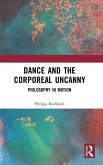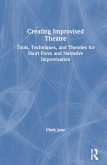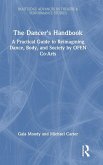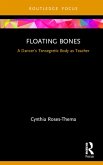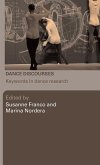'This is an impressive account of western improvised dance that remains loyal to the practice, while seeking to amplify its self-understanding. Wait's commitment to the concept of affect and its resonance runs through this book as a core principle, offering a basis for thinking through that which is distinctive about western improvised dance.'
Philipa Rothfield, honorary staff member in Philosophy and Politics at La Trobe University, Australia, and honorary professor in Dance and Philosophy of the Body at the University of Southern Denmark.
'Wait embraces the complex field of contemporary, western improvised dance, in what I'd call a cartography, a genealogy, and an analysis of local practices or case studies. Through a major compilation of sources and authors, Wait offers alternative conceptual models to re-categorize practices and escape dualisms. This book makes an important contribution to dance studies.'
Isabelle Ginot, Professor in the Dance Department at Université Paris 8 - Vincennes-Saint-Denis, France.
'Improvised Dance: (In)Corporeal Knowledges is a tremendous boon to the field of dance improvisation practice, as well as the scholarly fields of improvisation theory and dance studies, providing a rigorous philosophical framework and precise language for some very slippery ideas. Dance resides in this territory: slippery, fleshy, emotional, (in)corporeal. This territory has historically made empirical studies and the academy uncomfortable. With this book, Wait demonstrates dance is a singularly important site of research from which to forward current philosophical thought.'
Megan Bridge, Temple University
Philipa Rothfield, honorary staff member in Philosophy and Politics at La Trobe University, Australia, and honorary professor in Dance and Philosophy of the Body at the University of Southern Denmark.
'Wait embraces the complex field of contemporary, western improvised dance, in what I'd call a cartography, a genealogy, and an analysis of local practices or case studies. Through a major compilation of sources and authors, Wait offers alternative conceptual models to re-categorize practices and escape dualisms. This book makes an important contribution to dance studies.'
Isabelle Ginot, Professor in the Dance Department at Université Paris 8 - Vincennes-Saint-Denis, France.
'Improvised Dance: (In)Corporeal Knowledges is a tremendous boon to the field of dance improvisation practice, as well as the scholarly fields of improvisation theory and dance studies, providing a rigorous philosophical framework and precise language for some very slippery ideas. Dance resides in this territory: slippery, fleshy, emotional, (in)corporeal. This territory has historically made empirical studies and the academy uncomfortable. With this book, Wait demonstrates dance is a singularly important site of research from which to forward current philosophical thought.'
Megan Bridge, Temple University




